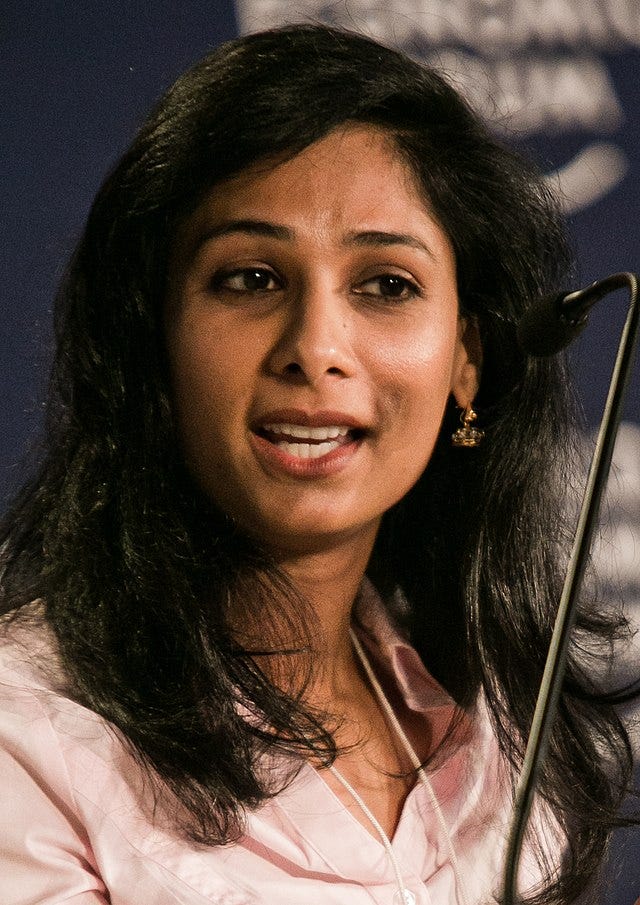🔅 Are Nigeria's Unemployment Numbers Real? & IMF's Warning
Plus: Africans Are Desperate for Change & Uber's Green Takeover
Photo of the day: Kinshasa Family on the Move, Democratic Republic of Congo
Markets: Year-to-Date
🟢 Nigerian SE: 67,527.19 (+31.76%)
🟢 Johannesburg SE: 74,786.79 (+2.38%)
🟢 Ghana SE: 3,051.37 (+24.86%)
🔴 Nairobi SE: 98.14 (-23.01%)
🟢 US S&P 500: 4,515.77 (+18.09%)
🟢 Shanghai Composite: 3,133.25 (+0.54%)
*Data accurate as of the close of markets across the continent
Brief & Bright: Africa's Top Five
Nigeria's Lowest Unemployment Rate in Years: A Misleading Stat or Something to Celebrate?

Nigeria's statistics agency recently announced the country's unemployment rate as 4.1%, the lowest in many years and a commendable statistic anywhere in the world. But, analysts are calling this figure into question. Why? Well, the National Bureau of Statistics has changed the way it counts the employed. Now, anyone who works at least one hour a week is considered employed. Does that really reflect the true number of jobless people in Nigeria? Probably not. After all, many businesses in the micro, small and medium enterprise sectors have had to lay off workers or shut down due to surging inflation. And while it's true that many unemployed Nigerians will take any job, no matter how small, one hour a week isn't really enough to count as being employed. It's time for the NBS to revise its methodology and “properly reflect our own reality”, says Muda Yusuf, a former director general of the Lagos Chamber of Commerce and Industry, "What can a one-hour job do?” he queried.
Many Africans Are Desperate For Change
After a 55-year rule in Gabon, the people finally had enough and danced in the streets when a military coup deposed the president. This scene is becoming all too familiar in West and Central Africa, where there have been eight — yes, eight — coups since 2020. The popular dissatisfaction is caused by bad governance, rising food and living costs, and the fact that elections are often flawed. According to a survey run in 2023, the number of people supporting the idea of democracy in Africa has dropped to 68% from 73% a decade ago. With 27 of the 54 African countries (almost half) among the 30 least developed in the world, it’s no wonder people are desperate for change — especially considering the natural resources their countries are blessed with, but unequally distributed. “The leaders who are supposed to be democrats are not abiding by the rules of democracy… and people are wondering, what is in this system for me?” said Remi Adekoya, a politics lecturer at the University of York. He’s got a point.
The IMF's Advice for Africa: Get Ready for the Climate Change Costs
The IMF is giving emerging markets, including Africa, a wake-up call. The organization’s No. 2 official warned that the future is looking more volatile and uncertain, and that countries need to start preparing for the trillions of dollars in climate change costs they’ll have to pay. What else can Africa do to get ready? Gita Gopinath suggested that countries need to strengthen their fiscal buffers, boost revenues, diversify trade, and adopt a fiscally and socially sustainable climate strategy (including carbon pricing measures). Oh, and don’t forget the rising interest rates, which could hit emerging markets the hardest. That’s a lot of work. But Gopinath reminded everyone that there’s potential in the continent, and that Africa has shown resilience over the past few years.
Uber's Green Takeover of Kenya

Uber’s got some big plans for Kenya—they’re rolling out electric motorbikes. The ride-hailing giant is introducing 3,000 electric bikes in the next six months, and they’ll be cheaper than the regular Uber motorbikes. Drivers will be able to cut their operating costs by 30-35%, and users will consequently save 15-20% on their rides. Plus, the bikes will be less noisy and vibrate less, so you can arrive at your destination feeling less shaken and more refreshed. The move towards green is encouraged by the government as a whole, which generates more than 90% of its power from renewable sources. Local firms are setting up motorcycle battery-swapping stations to prepare themselves for the impending changes. The country’s president wants to see the number of electric motorbikes on the road jump from its current number of 2,000 to 200,000 by 2024. It’s a huge opportunity for employment, as motorbike transport absorbs millions of people who can’t find formal jobs.
Mozambique's Insurgency Battle: Is it Turning a Corner?
It’s been a tough battle, but it looks like Mozambique may be turning a corner in its fight against a deadly insurgency. The main military commander of Islamic State’s affiliate in the country’s gas-rich north was killed in battle last week, and the militants’ top leader is presumed dead. This could be a major victory for the troops from Rwanda and the Southern African Development Community, who’ve been helping Mozambique gain the upper hand over the past two years. And, of course, it’s good news for the estimated 1 million people who have fled their homes because of the fighting, and for the gas export projects that were worth around $50 billion (TotalEnergies and ExxonMobil are some of the major companies invested in the area). But don’t get too excited yet—the rebels still roam the area's forested cover, and they’re even trying to win over the locals by appealing to their lack of jobs and schooling. Mozambique still has a long way to go in order to secure the region, so unless the government develops the area quickly, the gains may be short-lived.
Food for Thought
“To agree to have dialogue is the beginning of a peaceful resolution.”
— Somali Proverb.
Are we hitting the mark?
Enjoying Baobab's updates? Spread the joy and share us with friends and colleagues — we'd be thrilled to have them join!
Feedback or thoughts? Just hit reply. We're all ears!






